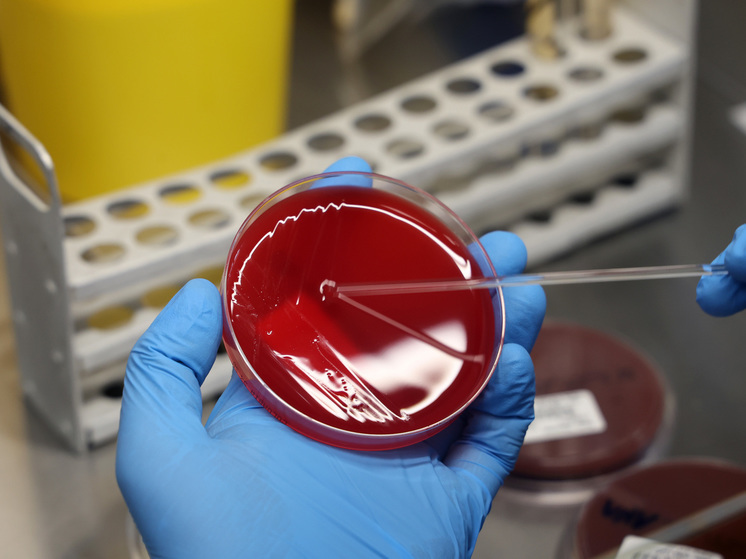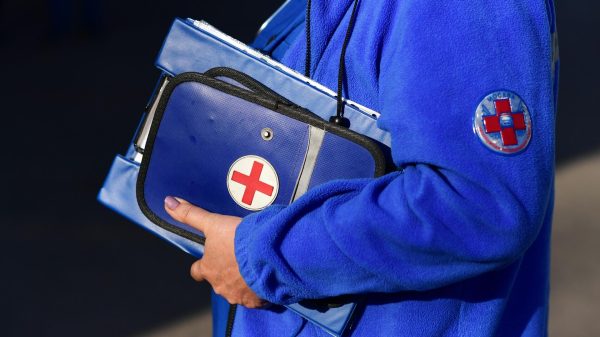'Leads to improved outcomes'
A new study has found that certain types of bacteria in the mouth 'dissolve' some types of cancer. People with head and neck cancer are thought to have better treatment outcomes if fusobacteria are found in their cancer.

A common type of bacteria in the mouth can «dissolve» some cancers, scientists have found, The Guardian reports.
Researchers from Guy's College, St Thomas' and King's College London said they were «cruelly surprised» to find that Fusobacterium — a type of bacteria commonly found in the mouth — appears to have the ability to kill some cancers.
According to the study, people with head and neck cancer who had these bacteria in their cancer cells had significantly better treatment outcomes.
Researchers are now studying the exact biological mechanisms behind this link following the initial findings.
Dr Miguel Reis Ferreira, senior author of the study and a consultant in head and neck cancer at Guy's and St Thomas' Hospitals, told PA News: «Basically, we found that when you put these bacteria in head and neck cancers, they have much better outcomes. The other thing we found is that in cell cultures, this bacterium is able to kill cancer. We concluded that this little bug is leading to better outcomes based on what it does inside the cancer. So we are currently looking at that mechanism and it should be the subject of a new paper in the near future.»
He added: “This study shows that these bacteria play a more complex role in fighting cancer than previously known — they essentially melt head and neck cancer cells. However, this discovery should be complemented by their known role in the development of cancer, for example in the intestine.”
The scientists used modelling to help identify which bacteria might be of interest for further study. They then studied the bacteria's effect on cancer cells in the lab, as well as analysing data from 155 head and neck cancer patients whose tumours were included in the Cancer Genome Atlas database.
The scientists initially expected a different result, as previous studies had linked fusobacteria to the progression of bowel cancer, The Guardian notes.
In the lab, the researchers placed some of the bacteria in petri dishes and left them for a couple of days. When they returned to check the bacteria's effect on the cancer, they found that the cancer had almost disappeared.
The researchers found that after infection with Fusobacterium, the number of viable cancer cells in head and neck cancer cells was reduced by 70 to 99%.
An analysis of patient data showed that those who had Fusobacterium in their cancer had a better chance of survival than those who did not. Fusobacterium detection in head and neck cancer was associated with a 65% lower risk of death compared to patients whose cancer did not contain the bacteria.
Researchers hope the discovery could help treat patients with head and neck cancer, which includes cancers of the mouth, throat, vocal cords, nose and sinuses.
Experts said there had been little progress in treating head and neck cancer in the past 20 years, so there was hope the discovery could lead to new treatments in the future, The Guardian reported.
Reis Ferreira said that before they started their lab work, the team expected the fusobacterium to stimulate the growth of these cancers or make them more resistant to radiotherapy. But in fact, they found that “after a few days, it just completely wipes out the cancer.”
“You inject it into the cancer cells in very small amounts and it just starts killing them very quickly,” he said.
Dr Anjali Chander, a senior research fellow at King’s College London and lead author of the study, said: “Our results are remarkable and very surprising. We were amazed to find that our overseas colleagues had also found data to support this discovery.”
Barbara Kasumu, chief executive of Guy's Cancer Charity, which helped fund the research, said: “We are proud to support Miguel and Anjali's groundbreaking research, which aims to advance our understanding of head and neck cancer and develop more compassionate and effective treatments.”





















































Свежие комментарии